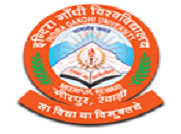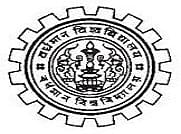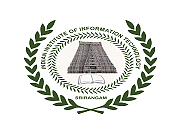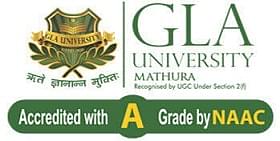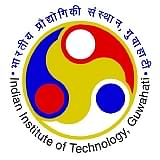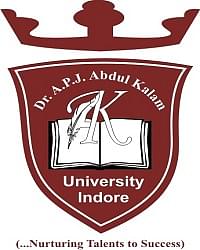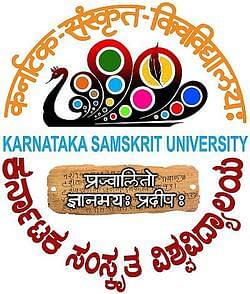Introduction
about Ph. D in Catering Management
A PhD in Catering Management is an advanced academic program designed for individuals who seek to become experts in the management, operations, and strategic development of catering businesses and hospitality enterprises. This doctoral program delves deep into
various aspects of catering management, including culinary arts, event
planning, food service operations, hospitality management, and business
administration. It aims to prepare students for leadership roles in the
catering industry, equipping them with advanced skills in research, analysis,
and innovation to address the challenges and opportunities in this dynamic
field.
Program Overview
A PhD in Catering Management
offers a comprehensive curriculum that combines theoretical knowledge with
practical training, research projects, and dissertation work. The program
covers a wide range of topics relevant to catering management, including culinary
techniques, menu planning, customer service, financial management, marketing
strategies, and sustainability practices. Through interdisciplinary study and
research, students gain insights into the complexities of the catering industry
and develop solutions to enhance operational efficiency, customer satisfaction,
and business performance.
Objectives of the Program
Advanced Knowledge: Develop expertise in catering management
theories, principles, and practices.
Research Skills: Acquire advanced research skills and methodologies to conduct original
research in catering management.
Leadership Development: Prepare future leaders and innovators in the
catering industry through strategic thinking, problem-solving, and
decision-making.
Industry Impact: Contribute to the advancement of the catering industry through
innovative practices, best practices, and evidence-based solutions.
Entrepreneurship: Foster entrepreneurial skills and business acumen to launch and manage
successful catering enterprises.
Core Areas of Study
Catering Operations Management:
Study of catering
operations, logistics, and production processes.
Topics may include menu
planning, food preparation techniques, kitchen management, and quality control.
Event Planning and Management:
Examination of event
planning principles, event coordination, and logistics management.
Focus on catering for
various events, including weddings, corporate functions, and special occasions.
Hospitality Marketing and Sales:
Strategies for marketing
catering services, sales techniques, and customer relationship management.
Analysis of market trends,
consumer behavior, and competitive positioning.
Financial Management and Cost Control:
Financial analysis,
budgeting, and cost control measures specific to catering businesses.
Techniques for pricing
strategies, revenue management, and profitability optimization.
Culinary Arts and Menu Development:
Advanced culinary
techniques, recipe development, and menu engineering.
Innovation in menu design,
dietary trends, and food presentation.
Sustainability and Food Safety:
Sustainable practices in
catering operations, waste reduction, and environmental stewardship.
Compliance with food safety
regulations, sanitation standards, and quality assurance protocols.
Dissertation
The dissertation is a
significant component of the PhD program, allowing students to conduct original
research on a topic of interest within the field of catering management. The
dissertation process involves:
Research Proposal: Formulating a research question, conducting
a literature review, and proposing a research methodology.
Data Collection and Analysis: Gathering data through primary or secondary
sources and analysing it using appropriate research methods.
Writing and Defence: Documenting the research findings in a
dissertation and defending it before a committee of experts.
Career Prospects
Graduates of a PhD in
Catering Management can pursue various career paths in the catering industry,
hospitality sector, academia, and research organizations. Potential career
opportunities include:
Catering management
positions in hotels, resorts, event venues, and catering companies.
Entrepreneurial ventures
such as catering businesses, event planning firms, or culinary startups.
Leadership roles in
hospitality management, food service operations, and hospitality consulting
firms.
Academic positions as
professors, researchers, or educators in hospitality management programs or
culinary schools.
Research and development
positions in food companies, culinary labs, or research institutions focusing
on catering and hospitality.
Benefits of a PhD in
Catering Management
Expertise and Recognition: Gain specialized knowledge and expertise in
catering management, positioning yourself as a leader and innovator in the
industry.
Research Contributions: Make significant contributions to the field
of catering management through original research, best practices, and industry
insights.
Career Advancement: Open doors to advanced career opportunities,
leadership roles, and entrepreneurial ventures in the catering and hospitality
sectors.
Academic Impact: Inspire and educate future generations of catering professionals
through teaching, mentorship, and academic research.
Industry Influence: Shape the future of the catering industry by
implementing innovative practices, sustainability initiatives, and industry
standards.
What is
admission process for Ph. D in Catering Management ?
The admission process for PhD in Catering Management may vary depending on the institution offering the program, but here's a general overview of the typical admission process:
1. Research and Preparation
Research Programs: Explore universities and institutions
offering a PhD in Catering Management. Consider factors such as faculty
expertise, research focus, resources, and program reputation.
Review Requirements: Carefully review the admission requirements,
including academic qualifications, prerequisites, application materials, and
deadlines.
2. Meet Eligibility Criteria
Educational Background: Most programs require applicants to hold a
master’s degree in Catering Management, Hospitality Management, Culinary Arts,
Food Service Management, or a related field. Some programs may consider
applicants with a bachelor’s degree if they have extensive professional
experience.
Academic Performance: A strong academic record, typically with a
minimum GPA requirement, is often necessary. The specific GPA requirement
varies by institution.
Professional Experience: Relevant professional experience in the
catering industry, hospitality sector, or related fields may be preferred or
required.
Research Experience: Previous research experience, demonstrated
through academic projects, publications, presentations, or professional work,
can strengthen your application.
Language Proficiency: If you're a non-native English speaker, you
may need to provide proof of English proficiency through standardized tests
such as the TOEFL or IELTS.
3. Prepare Application
Materials
Application Form: Complete the online application form provided by the university or
institution.
Transcripts: Submit official transcripts from all post-secondary institutions
attended, including undergraduate and graduate degrees.
Curriculum Vitae (CV): Provide a detailed CV highlighting your
academic background, professional experience, research activities, and any
publications or presentations.
Statement of Purpose (SOP): Write a compelling SOP outlining your
research interests, career goals, and reasons for pursuing a PhD in Catering
Management. Explain how your background and experiences have prepared you for
the program and how the program aligns with your academic and professional
aspirations.
Research Proposal: Some programs may require a research
proposal that outlines your intended research topic, objectives, methodology,
and significance.
Letters of Recommendation: Obtain 2-3 letters of recommendation from
academic advisors, professors, or professional supervisors who can attest to
your academic abilities, research potential, and professional experience.
4. Application Submission
Application Fee: Pay the application fee, if required by the institution.
Submit Application: Ensure all components of your application,
including transcripts, test scores, and recommendation letters, are submitted
before the application deadline. Many universities use online application
portals for submission.
5. Interview Process
Interview: If shortlisted, you may be invited for an interview. The interview may
be conducted in person, over the phone, or via video conferencing. It provides
an opportunity for the admissions committee to assess your academic
qualifications, research interests, and suitability for the program.
6. Admission Decision
Review Process: The admissions committee reviews applications holistically,
considering academic qualifications, research potential, professional
experience, and alignment with the program's objectives.
Notification: You will be notified of the admission decision. Successful candidates
will receive an offer letter outlining the terms of admission, including any
funding or assistantship opportunities.
7. Acceptance and Enrollment
Accept Offer: If you receive an offer of admission, carefully review the terms and
conditions and accept the offer by the specified deadline.
Enrollment: Complete any additional administrative steps required for enrollment,
such as submitting a deposit, registering for courses, and attending
orientation sessions.
Additional Considerations
Funding: Explore funding opportunities such as scholarships, grants,
assistantships, or fellowships offered by the institution or external
organizations.
Visa and Immigration: International students will need to obtain a
student visa to study in the respective country. Follow the institution's
guidelines and provide the necessary documentation for the visa application
process.
What is
eligibility for Ph. D in Catering Management ?
Eligibility criteria for PhD in Catering Management typically include the following:
Educational Background:
Most programs require
applicants to have a master’s degree in Catering Management, Hospitality
Management, Culinary Arts, Food Service Management, or a closely related field.
Some programs may consider
applicants with a bachelor’s degree if they have extensive professional
experience and a strong academic record. However, a master’s degree is usually
preferred.
Academic Performance:
A strong academic record is
essential. Most programs have a minimum GPA requirement, often around 3.0 on a
4.0 scale. However, specific GPA requirements may vary by institution.
Applicants should have
demonstrated academic excellence in their previous coursework and research
projects.
Professional Experience:
Relevant professional
experience in the catering industry, hospitality sector, or related fields is
typically preferred or required.
Candidates with significant
experience in catering management, event planning, food service operations, or
hospitality management may have an advantage.
Research Experience:
Previous research
experience, demonstrated through academic projects, publications,
presentations, or professional work, can strengthen your application.
Applicants should show
evidence of their ability to conduct independent research or contribute to
scholarly work in the field of catering management.
Standardized Test Scores:
Some programs may require
scores from standardized tests such as the GRE (Graduate Record Examination) or
GMAT (Graduate Management Admission Test). However, specific test score
requirements vary by institution and program.
Language Proficiency:
For non-native English
speakers, proof of English proficiency is typically required. This can be
demonstrated through standardized tests such as the Test of English as a
Foreign Language (TOEFL) or the International English Language Testing System
(IELTS).
Minimum score requirements
for English proficiency tests vary by institution, but generally, a TOEFL score
of around 90-100 or an IELTS score of 6.5-7.0 is expected.
Other Requirements:
Some programs may have
additional requirements, such as a writing sample, an interview, or a portfolio
showcasing relevant work experience or research projects.
It's important to review the
specific eligibility criteria outlined by the institution offering the PhD
program in Catering Management you're interested in, as requirements may vary
between programs. Meeting these eligibility criteria demonstrates a candidate's
readiness for doctoral-level study and their potential to contribute to the
field of catering management through research, innovation, and leadership.
What is
syllabus for Ph. D in Catering Management ?
The syllabus for a PhD in
Catering Management varies depending on the institution offering the program,
faculty expertise, and specific research interests of students. However, here's
a comprehensive overview of the core areas of study typically covered in a PhD
program in Catering Management:
1. Advanced Catering
Management Courses
Strategic Management in Hospitality:
Examination of strategic
planning, organizational behavior, and leadership in the hospitality industry.
Analysis of industry trends,
competitive dynamics, and strategic decision-making processes.
Catering Operations Management:
Advanced study of catering
operations, logistics, and production processes.
Topics may include menu
planning, food preparation techniques, kitchen management, and quality control.
Event Planning and Management:
Advanced principles of event
planning, event coordination, and logistics management.
Focus on catering for
various events, including weddings, corporate functions, and special occasions.
Food and Beverage Management:
Study of food and beverage
service operations, menu engineering, and beverage management.
Analysis of industry trends,
consumer preferences, and revenue optimization strategies.
Financial Management in Hospitality:
Financial analysis,
budgeting, and cost control measures specific to catering businesses.
Techniques for pricing
strategies, revenue management, and profitability optimization.
Marketing and Sales Strategies:
Marketing principles, sales
techniques, and customer relationship management in the catering industry.
Analysis of market
segmentation, branding strategies, and digital marketing trends.
2. Research Methodology
Courses
Advanced Research Methods:
Training in qualitative and
quantitative research methodologies relevant to catering management.
Courses on research design,
data collection, analysis techniques, and academic writing.
Statistical Analysis:
Application of statistical
methods and software tools for data analysis in catering research.
Techniques for descriptive
statistics, inferential statistics, and multivariate analysis.
Qualitative Research Techniques:
Exploration of qualitative
research methods such as interviews, focus groups, and case studies.
Strategies for data
interpretation, thematic analysis, and qualitative research reporting.
3. Specialized Elective
Courses
Culinary Arts and Menu Development:
Advanced culinary
techniques, recipe development, and menu engineering.
Innovation in menu design,
dietary trends, and food presentation.
Sustainable Hospitality Practices:
Sustainable practices in
catering operations, waste reduction, and environmental stewardship.
Compliance with food safety
regulations, sanitation standards, and quality assurance protocols.
Hospitality Technology and Innovation:
Integration of technology
solutions, hospitality software, and digital platforms in catering operations.
Evaluation of emerging
technologies, mobile apps, and online booking systems.
4. Dissertation Research
Research Proposal Development:
Formulation and defense of a
dissertation proposal outlining the research topic, objectives, methodology,
and significance.
Dissertation Research and Writing:
Conducting original research
under the guidance of a faculty advisor.
Writing the dissertation,
which includes literature review, methodology, findings, discussion, and
conclusion.
Dissertation Defense:
Presentation and defense of
the dissertation before a committee of experts.
5. Seminars and Workshops
Doctoral Seminars:
Regular seminars to discuss
current research, emerging trends, and theoretical advancements in catering
management.
Guest lectures by industry
experts, academic scholars, and catering practitioners.
Research Workshops:
Practical workshops on
research methodologies, data analysis techniques, and academic writing.
Opportunities to present
research proposals and findings for peer feedback.
6. Comprehensive
Examinations
Qualifying Exams:
Exams to assess students'
comprehensive knowledge of catering management theories, research
methodologies, and their chosen specialization.
Often taken after the
completion of coursework and before the dissertation phase.
7. Optional Internships or
Fieldwork
Industry Internship or Fieldwork:
Some programs offer or
require internships or fieldwork experiences to gain practical exposure and
apply research in real-world catering settings.
The syllabus for a PhD in
Catering Management is designed to provide students with a comprehensive
understanding of catering management principles, research methodologies, and
specialized areas of study. Through a combination of coursework, seminars, workshops,
comprehensive examinations, and dissertation research, students develop the
knowledge, skills, and expertise necessary to advance the field of catering
management through scholarship, innovation, and practice.





